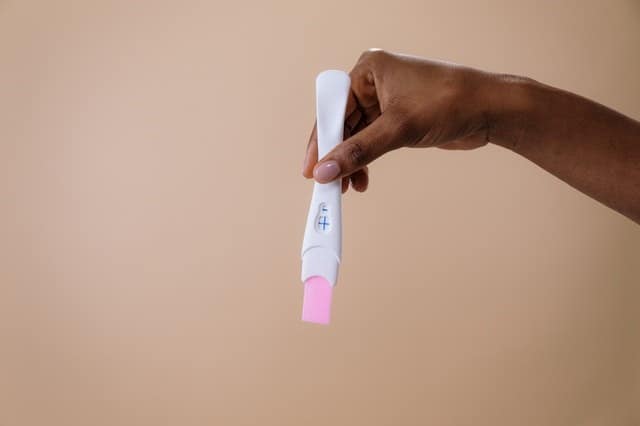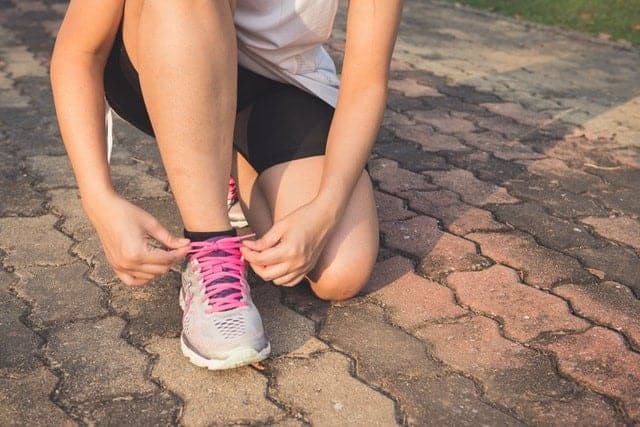Physical fitness is a key component in pregnancy. Naturally, a woman going through In Vitro Fertilization (IVF) should stay healthy to increase the chance of giving birth. Research suggests that a normal BMI increases IVF success. One way to maintain a healthy BMI is through exercise.
Generally, IVF patients are encouraged to avoid strenuous physical activities. This includes aerobic training, abdominal workouts, and anaerobic exercises. Heavy physical activity can lead to ovarian torsion, unsuccessful ovarian stimulation, implantation failure, cycle cancellation, and miscarriage.
This article will explore what exercises to avoid and the negative impact of strenuous exercise on IVF patients. We will also discuss why mild physical activity is beneficial for IVF patients, as well as list down safe exercises during IVF.
What is IVF?

In Vitro Fertilization is a medical procedure that involves uniting an egg and a sperm outside the body. Once the egg is fertilized, the embryo is then implanted back to the woman’s uterus. IVF helps infertile couples achieve pregnancy. Its success rate relies on various factors, such as lifestyle, reproductive history, the cause of infertility, maternal age and other factors.
IVF pregnancy rates and live birth rates vary. Among Americans, the highest live birth rate, at 41-43 percent, is noted in women under 35 years old. On the other hand, women over 40 have the lowest birth rate, at 13-18 percent.
Exercise During IVF

A research by Morris, et al. in 2006 indicated that vigorous physical activities contributed to low IVF success rates. The study revealed that working out four hours weekly for 1-9 years resulted in a 40% less chance of live birth, and an increased risk of implantation failure by as much as twice, compared to those who did not exercise. Moreover, the same study stated that women who engaged in cardiovascular exercise were 30% less likely to have a successful live birth.
Therefore, patients are advised to avoid exercise during certain IVF cycles. The most crucial periods are before egg collection and after embryo transfer.
What Are the Risks Associated with Exercise During IVF?

For women undergoing IVF treatment, good health and physical fitness are natural assets. When you are doing your best to increase your chances of having a baby via IVF treatment, it’s natural to wonder whether exercising would help tip the odds in your favor.
Unfortunately, the answer is an unqualified yes. When it comes to IVF and exercise, it can mean a tricky business. Too much exercise can have a negative effect on reproductive hormone production. Below are the risks associated with excessive exercise during IVF:
Unsuccessful Ovarian Stimulation
In IVF, ovaries are prompted to yield numerous eggs. To stimulate the ovaries, doctors inject luteinizing hormones, follicle-stimulating hormones, or a blend of these two medicines. Too much exercise puts pressure on the reproductive system. As a result, a woman’s hormonal pattern changes, and IVF hormone medicines may fail to take effect.
Ovarian Torsion
High-impact exercises can cause ovarian torsion. Twisting of the ovary marks this painful condition. During IVF treatment, the ovaries become enlarged. Strenuous physical activities may cause the enlarged ovaries to twist. Ovarian torsion, which is considered a medical emergency, can lead to a lack of blood flow to the fallopian tube and ovary. If not treated immediately, it can cause irreversible damage or loss of the ovary.
Implantation Failure
Implantation failure refers to the embryo’s inability to attach to the walls of the uterus. Rigorous exercise can decrease the chance of an embryo to implant, therefore it is advised that women should avoid strenuous exercise even weeks after the IVF cycle.
Cycle Cancellation
A full IVF cycle comprises these phases: ovarian stimulation, egg collection, embryo development, and embryo transfer. Every phase is important to accomplish live birth. Hence, any problem that may ensue in the course of the IVF process can result in cycle cancellation. A study indicated that cycle cancellation is three times more prevalent among women who do high impact exercises.
Miscarriage
A rise in body temperature poses a possibility of miscarriage. Hence, experts discourage any physical activity that can heighten the core body temperature during IVF treatment. Physical activities include not only exercises but also other activities that involve heat, like going to steam baths and saunas.
Exercise Restrictions During IVF

While there is no reason for a complete restriction on physical activities during IVF treatment, it is important that you keep your exercise routine to a low-impact and low-intensity zone during the cycle.
Aerobic Training
Doctors discourage cardiovascular exercises during IVF treatment. This includes running, dancing, hiking, and cycling. As mentioned, strenuous activities decrease IVF success rates. People who previously performed cardiovascular exercises can continue their routine during the early phase of IVF. However, once injections start, they should limit heavy exercises.
Anaerobic Workouts
Anaerobic exercises are high-impact. They include high-intensity interval training (HIIT), sprint, weight lifting, and push-ups. Just like cardiovascular training, anaerobic exercises may strain the reproductive system and reduce the chance of pregnancy. In addition, anaerobic training works the thigh and calf muscles. This can interrupt blood flow and damage the reproductive organs.
Abdominal Exercises
Any injury or strain to the abdomen can lead to a poor reproductive condition. Hence, experts prohibit abdominal workouts like crunches, dead bug, and planks throughout IVF treatment.
What Exercises are Ideal During IVF?

Physical activity is important for overall health. Therefore, one cannot stop it altogether during IVF. To heighten the likelihood of IVF success, one can resort to low-impact exercises. It is also beneficial to limit the frequency of performing these mild workouts.
The following are low-impact exercises recommended during IVF:
Walking
Walking is the safest exercise for IVF patients. Previously inactive women may start with a slow walk and then gradually get to the normal pace. IVF patients can engage walking for up to 30 minutes each day. One can walk longer than this, but the pace should remain normal and steady.
Low-intensity Swimming
Swimming is an aerobic exercise. While doctors discourage most aerobic workouts, light swimming is a good exercise for IVF patients. Swimming tones the muscles and burns fats. Furthermore, swimming is a relaxing activity that is fairly easy for the joints.
Yoga
Undergoing IVF treatment can be stressful. Hence, meditative exercises like yoga may be helpful for IVF patients. Yoga keeps the body fit and tones it without straining too much. During yoga sessions, one must avoid positions that put tension on the stomach. Also, one must steer clear of certain types of yoga. For instance, power yoga and ashtanga yoga are physically taxing exercises.
Light Hand Weights
As mentioned, IVF patients should avoid weight lifting. However, lifting light weights is acceptable. Weight lifting improves posture and bone density.
Light Stretching
Stretching keeps the muscles flexible and maintains the joints’ range of motion. Stretching also promotes good blood circulation. Moreover, it is a good exercise for relaxation.
Final Thoughts
Exercise is crucial for general health. For women who want to get pregnant, exercise plays an important role in fertility and stress relief. Engaging in mild exercise sets the foundation for a healthy pregnancy.
The body undergoes various changes during IVF treatment. Hence, the level of physical activity should be carefully determined. A good policy for exercise during IVF would be “better safe than sorry.”
It’s also worth noting that each body is different, including lifestyle, genetics, and possible medical conditions – all of which play a crucial role in achieving IVF success. Consulting your doctor is the best way to determine the right exercise and recommended level of activity that will be effective and safe during your IVF cycle.